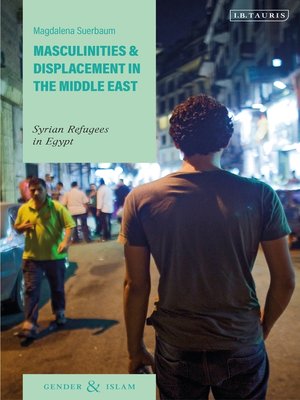Masculinities and Displacement in the Middle East
ebook ∣ Syrian Refugees in Egypt · Gender and Islam
By Magdalena Suerbaum

Sign up to save your library
With an OverDrive account, you can save your favorite libraries for at-a-glance information about availability. Find out more about OverDrive accounts.
Find this title in Libby, the library reading app by OverDrive.



Search for a digital library with this title
Title found at these libraries:
| Library Name | Distance |
|---|---|
| Loading... |
Following the outbreak of the Syrian uprising in 2011, many Syrians fled to Egypt. This ethnographic study traces Syrian men's struggles in Cairo: their experiences in the Egyptian labour market and efforts to avoid unemployment; their ambitions to prove their 'groomability' in front of potential in-laws in order to get married; and their discontent with being assigned the label 'refugee'. The book reveals the strategies these men use to maintain their identity as the 'respectable Syrian middle-class man' - including engaging in processes of 'Othering' and the creation of hierarchies – and Magdalena Suerbaum explains why this proved so much more difficult for them after Morsi was toppled in 2013.
Based on in-depth interviews, conversations and long-term participant observations, Suerbaum identifies Syrian men's emotional struggles as they undergo the experience of forced displacement and she highlights the adaptability and ultimate elasticity of constructed masculinities. The Syrians interviewed share their memories and their understandings of sectarianism and growing up in Syria, their interactions with the Egyptian and Syrian states, and their experiences during the Syrian uprising. The book takes an intersectional approach with close attention to the 'refugee' as a classed and gendered person.
Based on in-depth interviews, conversations and long-term participant observations, Suerbaum identifies Syrian men's emotional struggles as they undergo the experience of forced displacement and she highlights the adaptability and ultimate elasticity of constructed masculinities. The Syrians interviewed share their memories and their understandings of sectarianism and growing up in Syria, their interactions with the Egyptian and Syrian states, and their experiences during the Syrian uprising. The book takes an intersectional approach with close attention to the 'refugee' as a classed and gendered person.







